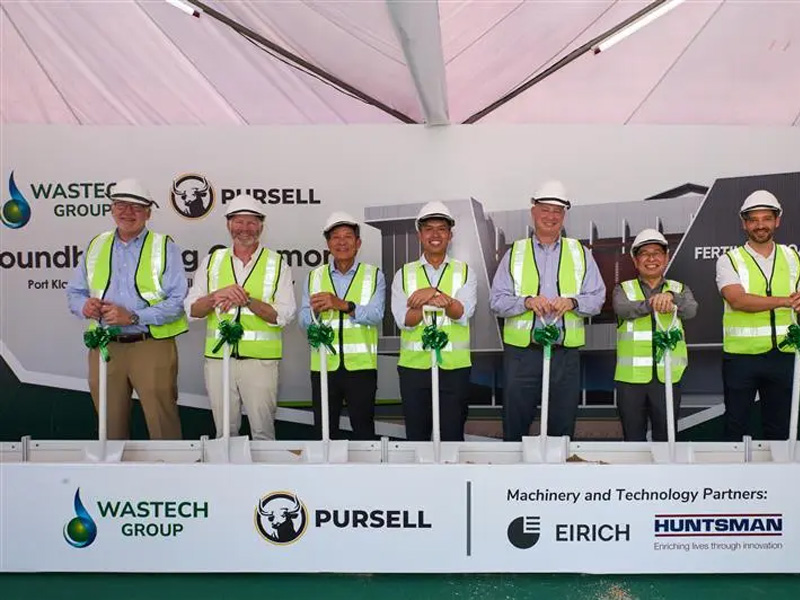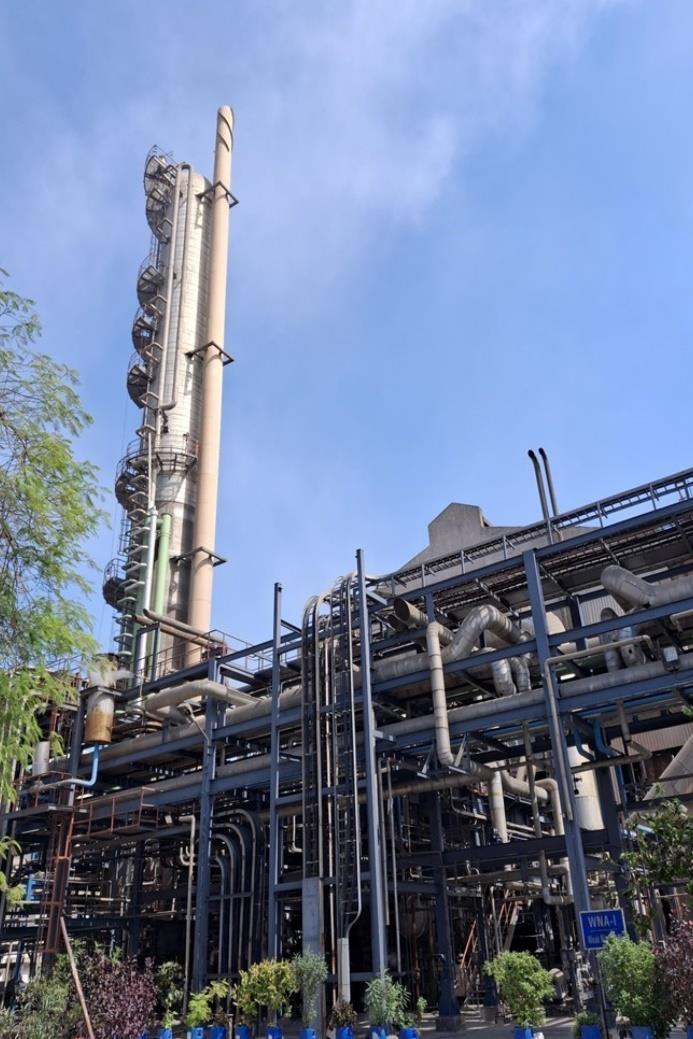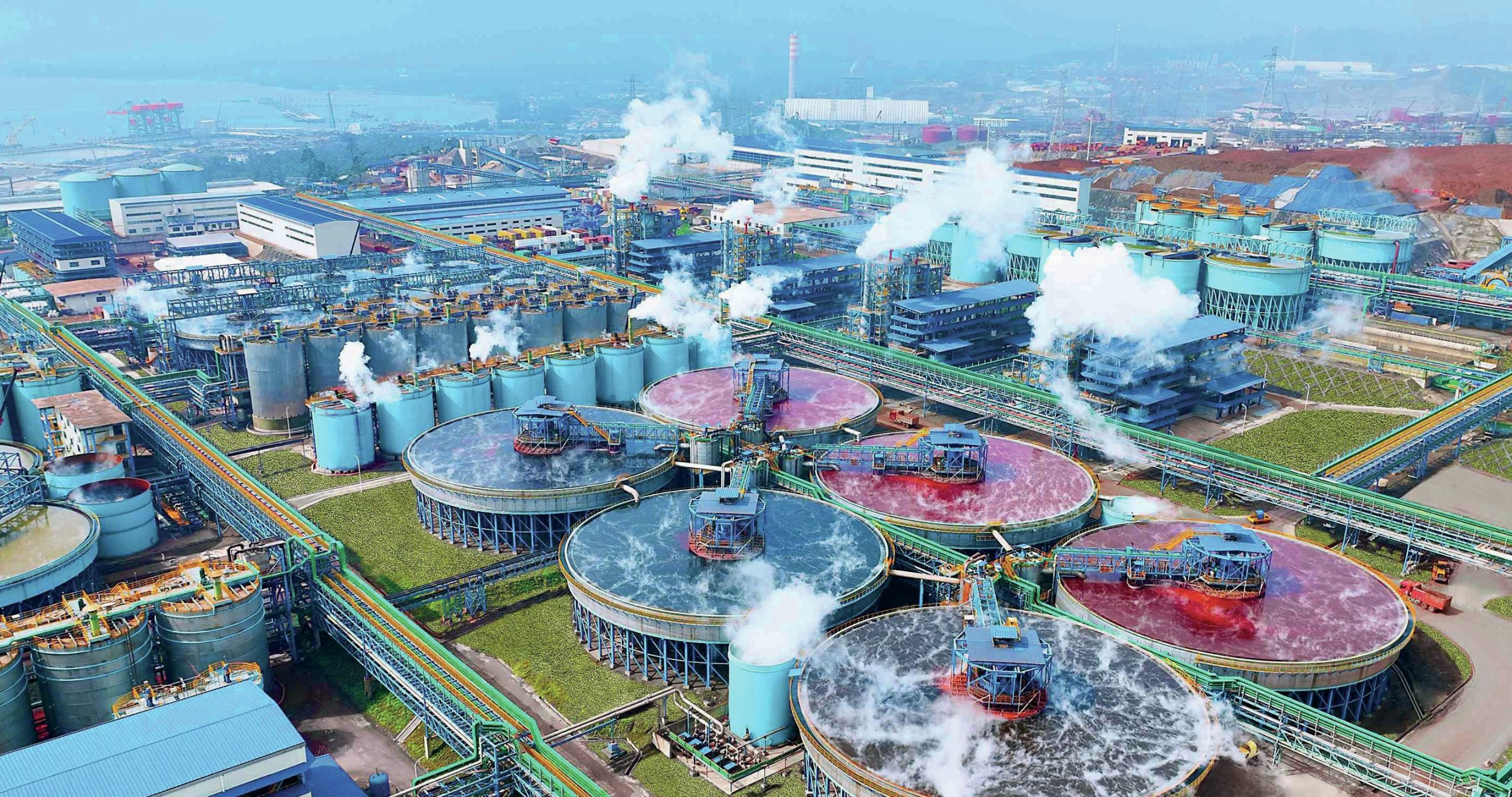Nitrogen+Syngas 365 May-Jun 2020

31 May 2020
Syngas News Roundup
Syngas News
UNITED STATES
Methanex defers construction on its third Geismar plant
Methanex has said that, in light of the uncertainty in the global economy from the Covid-19 pandemic, it will defer approximately $500 million of previously announced capital spending on its $1.4 billion Geismar 3 methanol project for up to 18 months. Geismar 3, which is intended to eventually produce 1.8 million t/a of methanol, will be placed on temporary “care and maintenance” for up to 18 months, enabling the company to complete the project when market conditions improve. Methanex says it will spend $100 million in Q1 2020 and a further $200 million from April 1, 2020 to September 30, 2021 on the project, the majority of which is spending that occurred or was committed during Q1 2020. This is approximately $500 million lower than the $800 million that was expected to be spent over that same period. Construction activity and procurement of non-critical equipment and bulk materials will be suspended until market conditions allow the Geismar 3 project to restart.
The company is also taking other steps to strengthen its financial position, including idling plants in Trinidad and Chile. John Floren, president & CEO of Methanex, commented, “We are taking proactive steps today during these unprecedented times to further strengthen our balance sheet, while maintaining long-term value and financial flexibility. We believe that deferring major capital spending on our advantaged Geismar 3 project, and minimising near-term spending, is a prudent decision in the current environment. We have ample liquidity today with approximately $800 million of cash on the balance sheet and we continue to evaluate all capital and operating spending as we navigate this challenging environment.”
Nacero agrees methanol to gasoline license
Texas-based Nacero, formerly known as Coachella Energy, says that it has agreed to license technology from Haldor Topsoe for the company’s planned $3 billion methanol to gasoline facility in Casa Grande, Arizona. The plant, which is intended to have a capacity of 35,000 bbl/d of gasoline, will use Topsoe’s TIGAS™ process, including 10,000 t/d of large scale Syn-COR Methanol™ natural gas-based methanol production. Pending a final investment decision, Topsoe will also supply proprietary hardware, catalysts, and services.
“By making an environmentally superior gasoline from natural gas rather than crude oil, Nacero will enable drivers to keep their cars and help the planet. Using existing vehicles, markets, infrastructure, and proven technology affords Nacero the opportunity to quickly and predictably create meaningful benefits at world-class scale,” says Jay McKenna, CEO, Nacero.
“We are proud that Nacero has made TIGAS their technology of choice in their ambitious plan to bring gasoline security and jobs to Arizona. This cutting-edge technology will help communities and producers monetize natural gas resources, and reduce imports by producing high-quality gasoline locally,” says Kim Knudsen, Executive Vice President, Haldor Topsoe.
FRANCE
Hydrogen powered fuel cell barge
The European Union (EU) has agreed e6.8 million of funding for its FLAGSHIPS hydrogen-powered boat demonstrator programme as part of its Fuel Cells and Hydrogen Joint Undertaking, and funded by the EU’s Horizon 2020 framework programme. The project is supporting the construction of a hydrogen fuel powered barge tug in the French city of Lyon, which will use hydroelectric power from the river Rhone to generate hydrogen for the vessel’s onboard fuel cells. There are 11 hydroelectric power stations on the 276 km stretch of the river between the port of Marseille and Lyon (two of the three biggest cities in France) and a regular convoy of barges carrying cargo upstream for import and downstream for export. The tug will be powered by two 200 kW fuel cells connected to a 300 kg mobile compressed-hydrogen fuel tank which can be removed and refilled with hydrogen created at an electrolysis plant using power from the Rhône hydroelectric dams. Vessel deliver is scheduled for mid-2021. Elsewhere, the FLAGSHIPS programme is also creating a hydrogen fuel cell and power system for a Norwegian public ferry service.

SWEDEN
Crowdfunding for CO2 to methanol project
Liquid Wind AB, a Swedish green energy company, has initiated its second crowdfunding campaign.
The company says it has already raised about 1 million krone ($100,000) which will be used to fund engineering and permitting work and speed up the process of bringing its product to market at scale. The Gothenburg-based start-up focuses on the conversion of waste carbon dioxide (CO2 ) and renewable power into renewable methanol. It intends to develop its first commercial-scale plant in Sweden and then build six more in the country, before expanding internationally. The plan is to reach financial close for the first facility in 2021.
Liquid Wind is operating in conjunction with a consortium consisting of Axpo, COWI, Carbon Clean Solutions, Haldor Topsoe, Nel Hydrogen and Siemens, supported by a e1.7 million investment from EIT InnoEnergy. Design work is under way on technology integration for the first facility, which expects to be producing 45,000 t/a of methanol by 2023, enabling a reduction of 90,000 t/a of CO2 . As part of the project, Haldor Topsoe is contributing its methanol process, hardware and catalysts.
Fifth anniversary of methanol powered ferry
Wärtsilä, Stena, and Methanex Corp are making five years of successful operation of the methanol-fuelled ferry Stena Germanica. This was the first ship in the world to run on methanol as a marine fuel, and the companies describe it as “a major milestone in the continued shift towards a more sustainable future for commercial shipping”. The ferry was converted to run on methanol fuel in early 2015 at Remontowa Shipyard in Poland. The 240-metre ferry, with capacity for 1,500 passengers and 300 cars, was retrofitted with a firstof-its-kind fuel-flexible Wärtsilä 4-stroke engine that can run on methanol or traditional marine fuels. The ferry began the world’s first methanol-powered sailings between Gothenburg, Sweden and Kiel, Germany in late-March 2015.
In the five years since the Stena Germanica’s launch, the market for methanol-powered vessels has seen continued growth. Methanex via its wholly-owned subsidiary Waterfront Shipping, operates the world’s largest methanol ocean tanker fleet with 11 vessels. Stena Bulk recently announced a joint-venture with Proman Shipping to build two methanol-powered vessels with delivery scheduled for the beginning of 2022.
TRINIDAD & TOBAGO
Methanex idles Titan plant
Methanex has idled its 850,000 t/a Titan plant on Trinidad from March 16th. Methanex president and CEO John Floren said that the closure was because of an anticipated fall in demand during the second quarter when there will be a substantial reduction in manufacturing activity caused by the coronavirus pandemic. Methanex is reducing production at facilities where it has flexibility in gas agreements, to prepare for this lower demand, Floren said. The company has also idled its Chile 4 plant from April 1st, for an indefinite period. The two facilities between them represent approximately 19% of Methanex’s annual operating capacity of 9.2 million t/a.

JAPAN
Methanol from recycled CO2
Mitsubishi Power Systems (MHPS), Mitsubishi Heavy Industries Engineering (MHI) and Mitsubishi Gas Chemical Company (MGC) will work together to conduct research on ‘recycling’ of carbon dioxide into methanol. The companies have been selected by the New Energy and Industrial Technology Development Organisation to carry out research at a refinery at Tomakomai City, Hokkaido, where CO2 is already captured and stored by an existing demonstration plant. The process will combine captured CO2 with hydrogen obtained as a by-product from refineries or from water electrolysis within the existing facility to generate 20 t/d of methanol.
EQUATORIAL GUINEA
Companies shortlisted for methanol and other projects
The Ministry of Mines and Hydrocarbons (MMH) of Equatorial Guinea has revealed the companies shortlisted for execution of its major development projects at the Punta Europa gas and energy hub. Equatorial Guinea is looking to convert the existing Atlantic Methanol plant into a methanol to gasoline facility as part of a modular refinery concept, and has also discussed building other downstream methanol derivatives such as formaldehyde. Companies involved in the methanol derivatives project include South African-based Pan African Energy, Nigerian Bugabi Group, and Haldor Topsoe. MMH says that it is still registering interest from additional players, including Chinese companies. Atlantic Methanol Production Co Ltd (AMPCO) is 45% owned by Marathon Oil and 45% Noble Energy Inc. Marathon is conducting a feasibility study on the refinery development, as well as developing offshore gas fields which are due to begin production in 2021. A second LNG plant is also under discussion/development.
UNITED KINGDOM
Planning approved for plastic to hydrogen facility
A plastics to hydrogen facility has received planning consent at a site near Ellesmere Port, Cheshire. The facility will convert 35 t/d of unrecyclable plastics into hydrogen via a gasification and syngas generation step. It will also generate electricity, which it will provide to commercial users via a micro-grid. Last year, developer Peel Environmental signed a collaboration agreement with Waste2Tricity and Powerhouse Energy to build the facility at its Protos site. The £7 million (US$8.1 million) plant will be the first in the UK to use Powerhouse Energy’s distributed modular generation (DMG) technology, which involves the plastics being shredded and then gasified to produce syngas.
Construction is expected to begin later this year and the facility is due to be operational in 2021.
Myles Kitcher, Managing Director at Peel Environmental, said: “The creation of this UK-first facility makes great strides to solve two important issues; the huge amount of waste plastic produced, and the over-reliance on fossil fuels for energy. The technology has been proven at Thornton Science Park and will now be commercialised at Protos, before being rolled out across the UK.”






